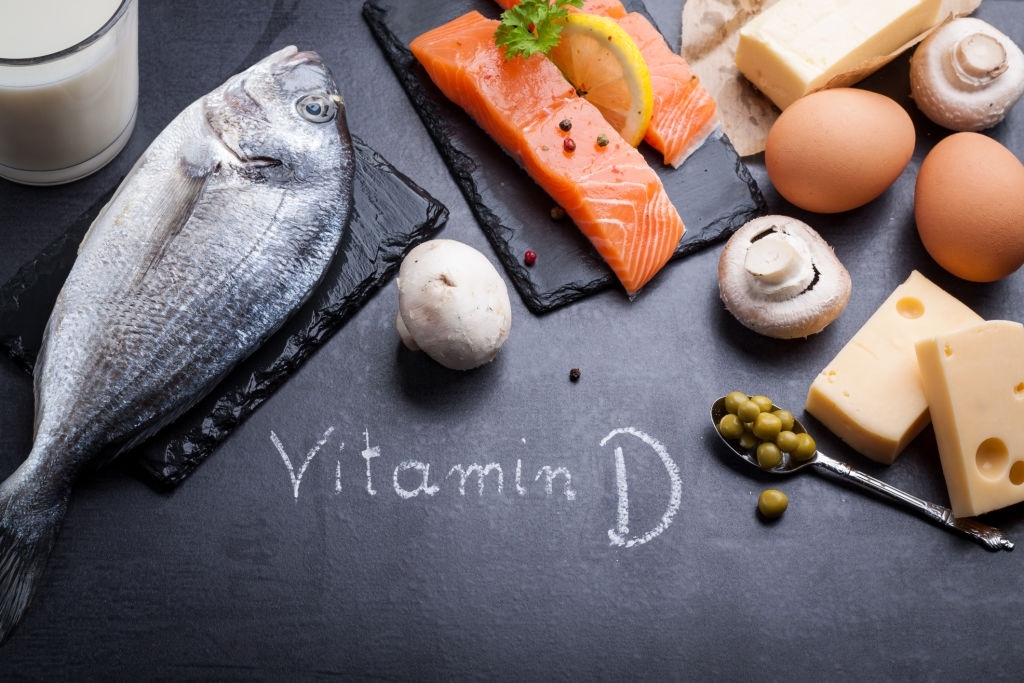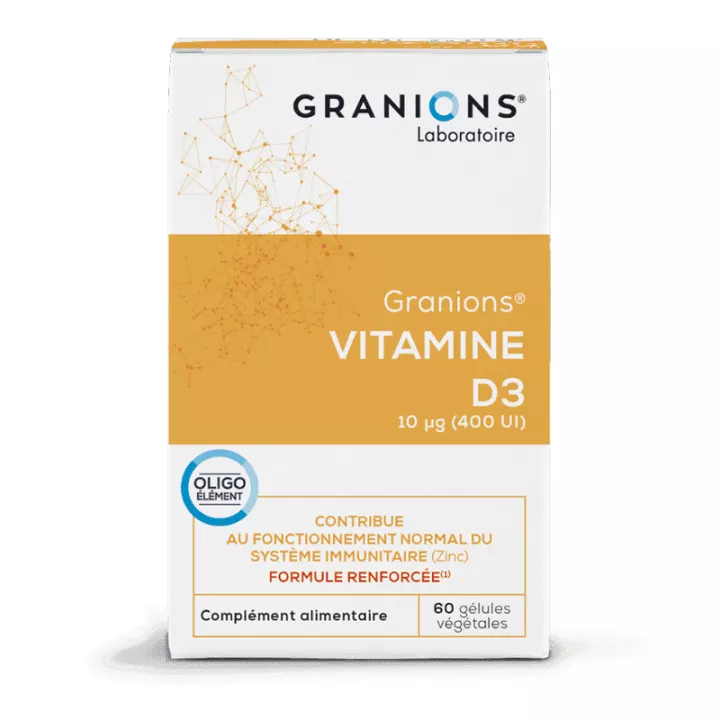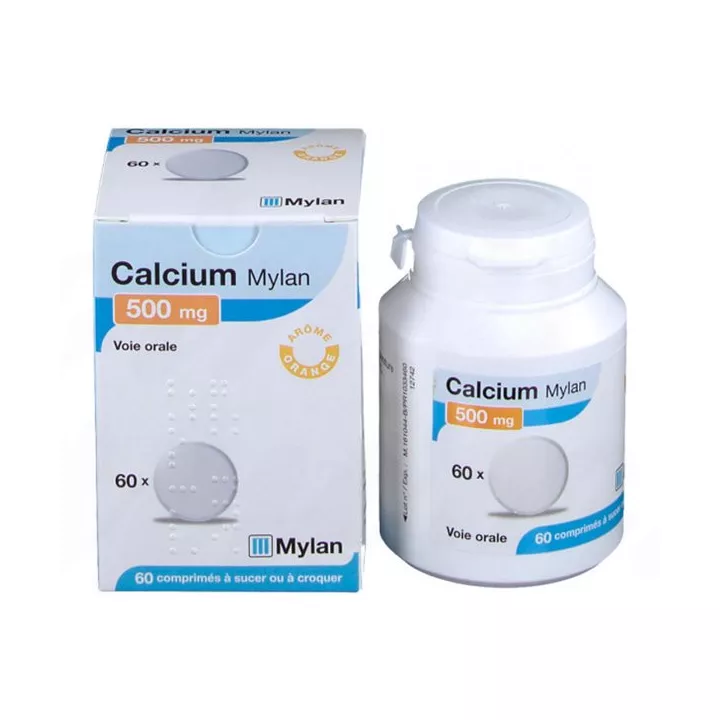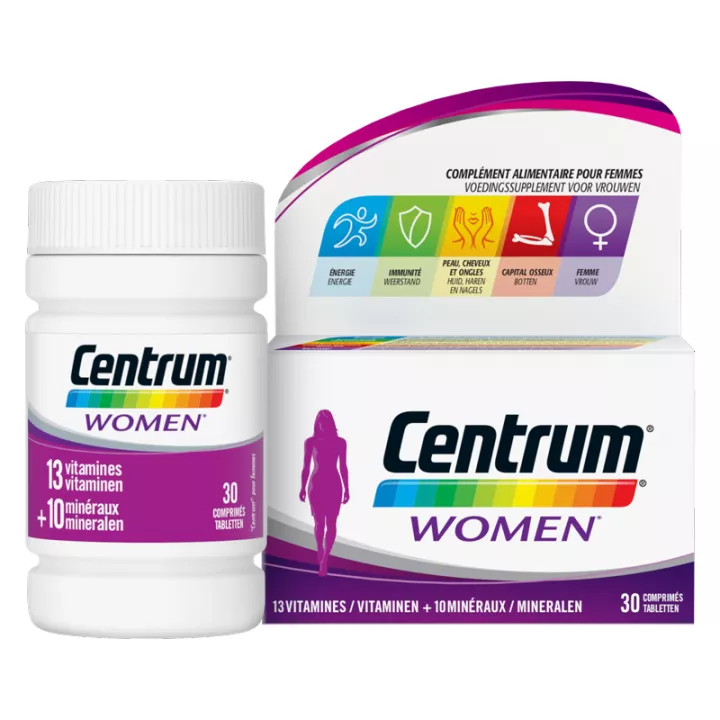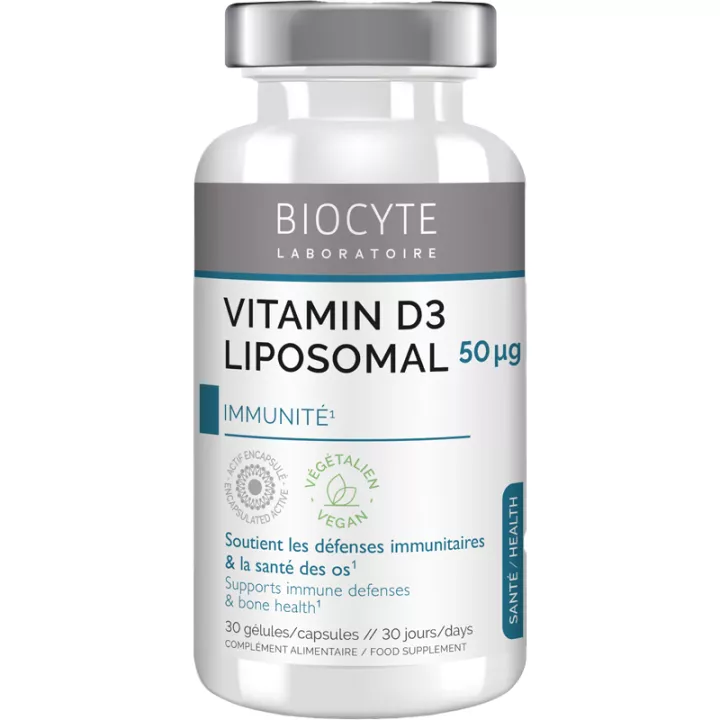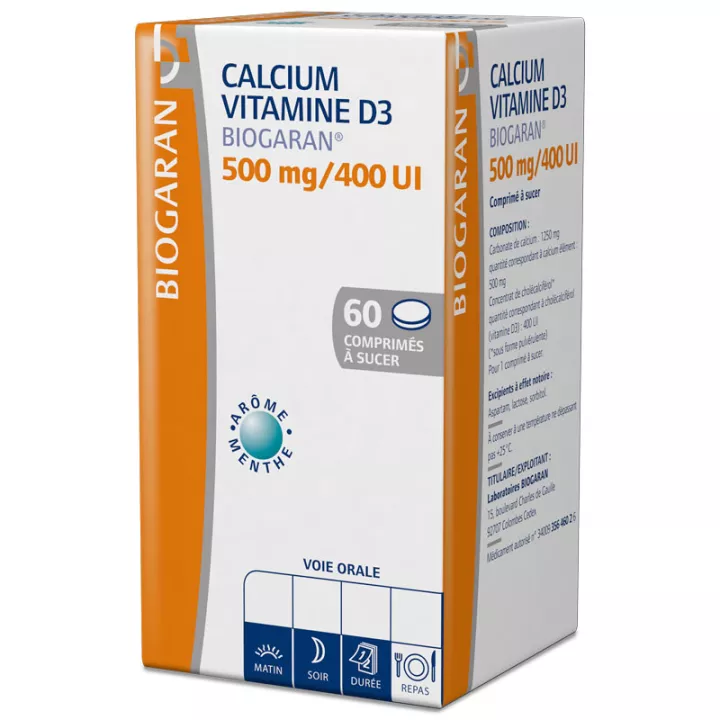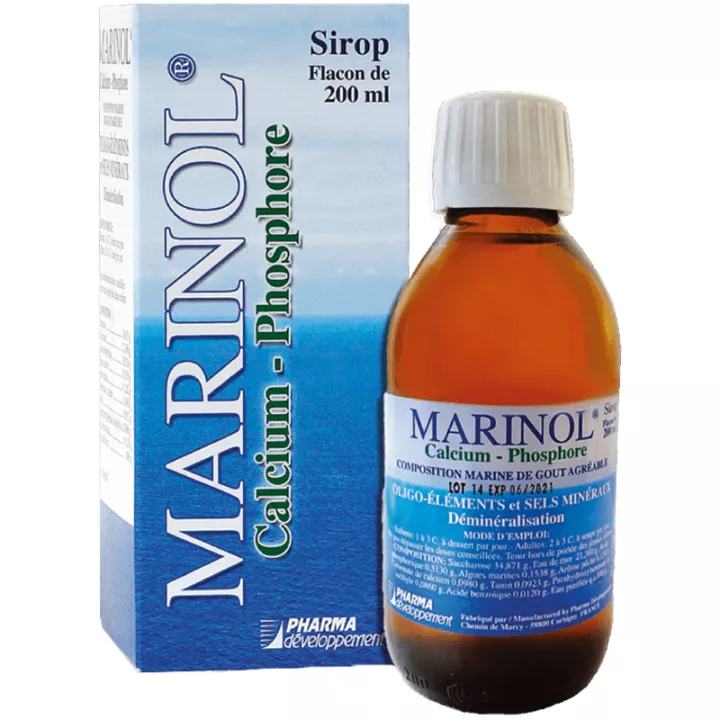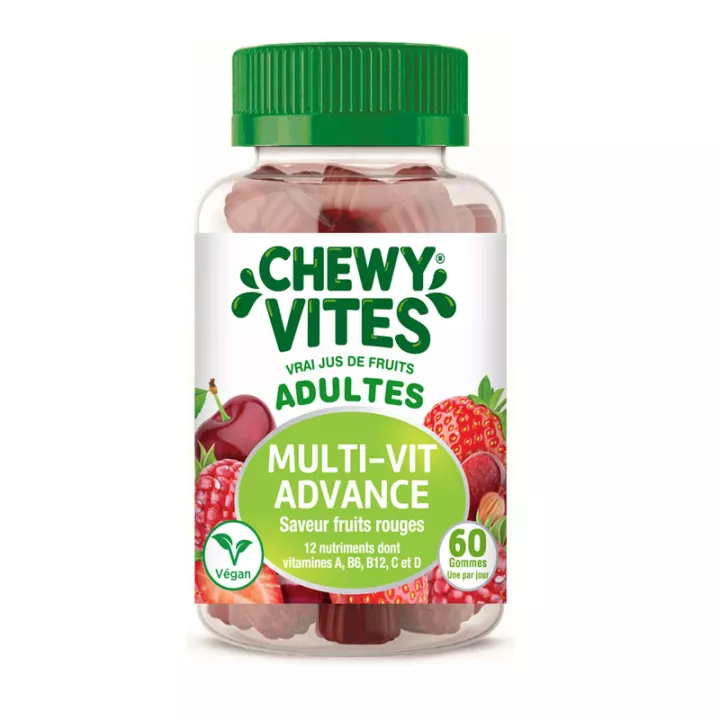NOTICE
ANSM - Last updated: 22/07/2013
Name of the medicinal product
NATECAL VITAMIN D 3 , 600 mg / 400 IU, orodispersible tablet
Calcium / cholecalciferol (vitamin D 3 )
framed
Read this leaflet carefully before you start taking this medicine. It contains important information for your treatment.
· Keep this leaflet, you may need to read it again
· If you have any questions, ask your doctor or pharmacist.
· Consult a physician if symptoms worsen or persist.
· If any of the side effects gets worse or if you notice any side effects not listed in this leaflet, please tell your doctor or pharmacist
Review summary
In this notice :
1. WHAT IS NATECAL VITAMIN D 3 , 600 mg / 400 IU, orodispersible tablet AND IN WHAT CASES IS IT USED?
2. BEFORE YOU TAKE NATECAL VITAMIN D 3 , 600 mg / 400 IU, orodispersible tablet?
3. HOW TO TAKE NATECAL VITAMIN D 3 , 600 mg / 400 IU, orodispersible tablet?
4. WHAT ARE POSSIBLE SIDE EFFECTS?
5. HOW TO STORE NATECAL VITAMIN D 3 , 600 mg / 400 IU, orodispersible tablet?
6. ADDITIONAL INFORMATION
1. WHAT IS NATECAL VITAMIN D3, 600 mg / 400 IU, orodispersible tablet AND IN WHAT CASES IS IT USED?
Pharmacotherapeutic group
NATECAL VITAMIN D 3 , 600 mg / 400 IU, orodispersible tablet contains two active ingredients, calcium carbonate and cholecalciferol (vitamin D 3 ). Calcium and vitamin D 3 are present in the diet and vitamin D is also manufactured in the skin after exposure to the sun. NATECAL VITAMIN D 3 orodispersible tablets may be prescribed by a doctor to treat and prevent vitamin-calcium deficiency.
Therapeutic indications
NATECAL VITAMINE D 3 is used:
· To treat vitamin-calcium deficiencies in the elderly,
· In combination with osteoporosis treatments when calcium and vitamin D levels are too low, or if there is a risk that they are low.
2. BEFORE YOU TAKE NATECAL VITAMIN D3, 600 mg / 400 IU, orodispersible tablet?
List of information needed before taking the medication
Not applicable.
Cons-indications
Never take NATECAL VITAMIN D 3 , 600 mg / 400 IU, orodispersible tablet in the following cases:
· If you are allergic (hypersensitive) to calcium, vitamin D 3 or any of the other ingredients of NATECAL VITAMIN D 3 (especially soybean oil);
· if you have high levels of calcium in the blood (hypercalcaemia) or in the urine (hypercalciuria);
· if you have kidney failure;
· if you have kidney stones;
· if you have high levels of vitamin D in the blood (hypervitaminosis D).
Precautions for use; special warnings
Take special care with NATECAL VITAMIN D 3 , 600 mg / 400 IU, orodispersible tablet:
· if you have had kidney stones or other kidney problems (your doctor will need to closely monitor your treatment if your kidneys are not working properly to ensure that calcium does not accumulate in your blood);
· if you stay in bed for an extended period (in months) and if you have osteoporosis (fragile bones) because you can have high levels of calcium in the blood;
· if you are taking other medicines or other products containing calcium or vitamin D (your doctor or pharmacist can tell you if this is the case);
· if you suffer from sarcoidosis (your doctor will tell you if this is the case).
Interaction with other medicines
Taking or using other medicines:
Do not use this medication without first talking to your doctor or pharmacist if you are taking:
· any other medicinal product containing vitamin D;
· the following drugs for the heart: digoxin or other cardiac glycosides;
· antibiotics of the class of tetracyclines and fluoroquinolones. It is recommended to wait at least 3 hours after taking these medicines before taking NATECAL VITAMIN D 3 ;
· thiazide diuretics;
· if you are taking other medications to treat bone problems, such as biphosphonates or sodium fluoride. It is recommended to wait at least 3 hours before taking the orodispersible tablets of NATECAL VITAMIN D 3 ;
· Phenytoin (an antiepileptic) and barbiturates (drugs used for epilepsy or to help you sleep), because they can make vitamin D 3 less effective;
· Orlistat (a medication to treat obesity), cholestyramine, laxatives such as paraffin oil, because they can reduce the amount of vitamin D 3 you absorb;
· Estramustine (a drug used in chemotherapy), thyroid hormones or medicines containing iron, zinc or strontium, as the amount absorbed can be reduced. They should be taken at least two hours before or after NATECAL VITAMIN D 3 .
Please tell your doctor or pharmacist if you are taking or have recently taken any other medicines, even medicines obtained without a prescription.
Interactions with food and beverages
Food and drinks
This product is likely to interact with certain foods, such as those containing oxalic acid (spinach, rhubarb, sorrel, cocoa, tea, etc.), phosphates (ham, sausages, cheese spreads ...) or phytic (legumes, whole grains, chocolate ...). Therefore, it is recommended to take NATECAL VITAMIN D 3 two hours before or after meals containing these types of food.
Interactions with Herbal Medicines or Alternative Therapies
Not applicable.
Use during pregnancy and lactation
Pregnancy and breast feeding
NATECAL VITAMIN D 3 orodispersible tablets should be used during pregnancy and lactation exclusively on the recommendation of a physician.
Ask your doctor or pharmacist for advice before taking any medicine.
Sport
Not applicable.
Effects on ability to drive or use machines
Not applicable.
List of excipients with known effect
Important information about some of the ingredients of NATECAL VITAMINE D 3 , 600 mg / 400 IU, orodispersible tablet:
The product contains: aspartam (E951), lactose, hydrogenated soybean oil, sucrose.
The product contains aspartame, a source of phenylalanine. Phenylalanine can be dangerous for people with phenylketonuria.
The product contains lactose and sucrose; therefore, if your doctor has told you that you are suffering from intolerance to some sugars, contact him or her before taking this medication.
The product contains soybean oil; therefore, if you are allergic to peanuts or soy beans, do not use this medicine.
3. HOW TO TAKE NATECAL VITAMIN D3, 600 mg / 400 IU, orodispersible tablet?
Instructions for proper use
Not applicable.
Dosage, Mode and / or route (s) of administration, Frequency of administration and Duration of treatment
Dosage
Always follow the dosage indicated by your doctor or pharmacist. If in doubt, consult your doctor.
The usual dose for adults and the elderly is one tablet twice a day (eg one tablet in the morning and one tablet in the evening), preferably after the meal.
Administration mode
The tablets can be put in the mouth without water and must be sucked. They should not be swallowed whole.
You will feel the tablets dissolve in your mouth within minutes. This will be accompanied by a slight effervescence.
Symptoms and Instructions for Overdose
If you take more NATECAL VITAMIN D 3 , 600 mg / 400 IU, orodispersible tablet than you should:
Contact your doctor. If this is not possible, go to the emergency room of the nearest hospital with the remaining tablets and packaging.
Instructions for omission of one or more doses
If you forget to take NATECAL VITAMIN D 3 , 600 mg / 400 IU, orodispersible tablet:
Take it as soon as you remember. Take the next dose at the usual time. However, if the next dose is near, skip the missed dose and continue as usual. Do not take two doses at the same time.
Risk of withdrawal syndrome
Not applicable.
4. WHAT ARE POSSIBLE SIDE EFFECTS?
Description of adverse reactions
Like all medicines, NATECAL VITAMIN D 3 , 600 mg / 400 IU, orodispersible tablet is likely to have side effects, although not everyone is subject to it.
The following effects are infrequent: (affecting 1 to 10 patients per 1,000):
· hypercalcemia (too much calcium in your blood) - Symptoms include nausea, vomiting, lack of appetite, constipation, stomach pain, bone pain, extreme thirst, need to urinate more often, muscle weakness, drowsiness and disorientation;
· hypercalciuria (too much calcium in your urine).
The following effects are rare: (affecting 1 to 10 patients out of 10,000):
· nausea
· stomach ache
· constipation
· diarrhea
· flatulence
· itching
· rash
· urticaria
The following effects have an unknown frequency (can not be estimated from the available data):
· Serious allergic reactions (hypersensitivity) such as swelling of the face, lips or tongue.
If you notice any side effects not listed in this leaflet, or if any of the side effects gets serious, contact your doctor or pharmacist.
5. HOW TO STORE NATECAL VITAMIN D3, 600 mg / 400 IU, orodispersible tablet?
Keep out of the reach and sight of children.
Expiration date
Do not use NATECAL VITAMIN D 3 , 600 mg / 400 IU, orodispersible tablets after the expiry date which is stated on the box and on the pill.
The expiry date refers to the last day of the month.
Storage conditions
Store at a temperature not exceeding 30 ° C
Store in the original package in order to protect from moisture.
If necessary, warnings against visible signs of deterioration
Medicines should not be disposed of via wastewater or household waste. Ask your pharmacist what to do with unused medications. These measures will help protect the environment.
6. ADDITIONAL INFORMATION
Full list of active substances and excipients
What is NATECAL VITAMIN D 3 , 600 mg / 400 IU, orodispersible tablet and contents of the pack?
This medication is in the form of an orodispersible tablet.
The tablet is round with bevelled edges and is white to whitish in color.
Box of 12, 60 or 180 (3 x 60 tablets) tablets.
Not all pack sizes may be marketed.
Pharmaceutical form and content
What is NATECAL VITAMIN D 3 , 600 mg / 400 IU, orodispersible tablet and contents of the pack?
This medication is in the form of an orodispersible tablet.
The tablet is round with bevelled edges and is white to whitish in color.
Pill containing 12 or 60 tablets.
Not all pack sizes may be marketed.
Name and address of the marketing authorization holder and the holder of the manufacturing authorization responsible for the release of the lots, if different
Holder
EFFIK
9/11 RUE JEANNE BRACONNIER
BUILDING "THE NEWTON"
92366 MEUDON LA FORET CEDEX
exploiting
EFFIK
BUILDING "THE NEWTON"
9/11, RUE JEANNE BRACONNIER
92366 MEUDON LA FORET
Maker
ITALFARMACO SPA
VIALE FULVIO TESTI, 330
20126 MILAN
ITALY
Names of the medicinal product in the Member States of the European Economic Area
This medicinal product is authorized in the Member States of the European Economic Area under the following names:
[to be completed by the holder]
Date of approval of the notice
The last date on which this leaflet was approved is {date}.
AMM under exceptional circumstances
Not applicable.
Internet Information
Detailed information on this medicine is available on the ANSM website (France).
Information for health professionals only
The following information is intended exclusively for healthcare professionals:
Other
Not applicable.
